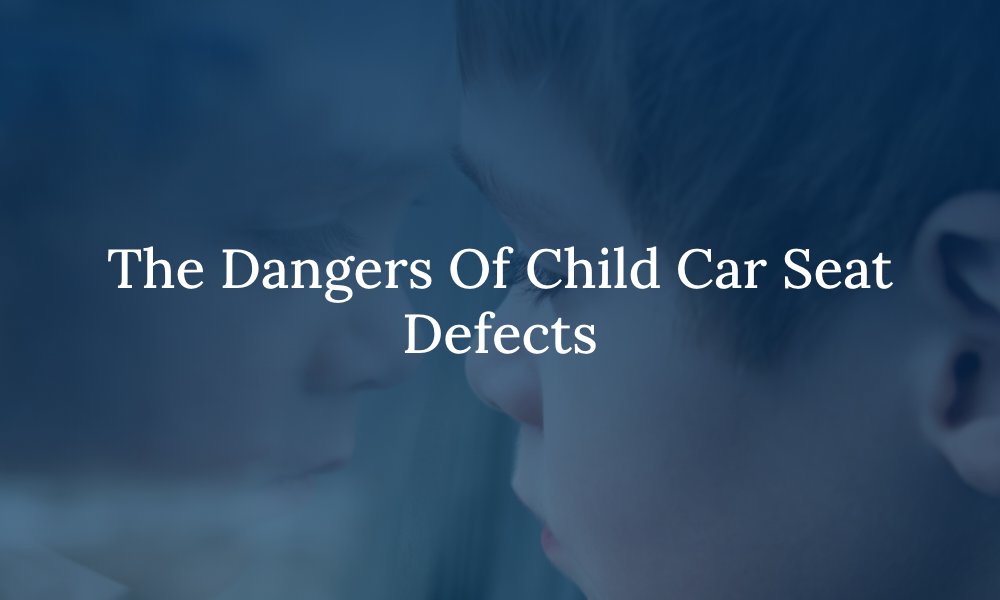Despite major progress made in the regulation of consumer products, dangerous defective products – even for the youngest and most vulnerable members of society – continue to make it into the marketplace by the hundreds of thousands. We not only understand the emotional turmoil a parent endures when a child is hurt or killed as the result of a defective product the parent has assumed to be safe, we fight to hold product manufacturers accountable for any damage they cause so they cannot hurt any more children.
Parents are besieged by advertisements for products geared toward infants, toddlers, older children, and teenagers; and, most assume these items come with a reasonable expectation of safety. Your child’s car seat would be at the top of the list of products you expect to be safe, especially since the use of car seats is required by law in every state. Though child safety seats have saved countless infants from severe injury or death, some have actually caused injury or death.

The American Academy of Pediatrics (AAP) recommends that children should be in rear-facing seats until they are two years old. Then they can transition to forward-facing safety seats until they are four years old or exceed the upper height and weight limit of the seat. Once a child is (1) over the age of four, (2) weighs over 40 pounds, (3) is mature enough to properly use a shoulder belt, he or she can transition to a booster seat that utilizes an adult lap and shoulder belt. Minor passengers should typically use a booster seat with an adult lap and shoulder belt until those items fit them properly without a booster, which usually happens between ages ten and twelve.
A new ProPublica investigation raises serious questions about the safety claims made by car seat manufacturers. Video shows a child-sized dummy being violently tossed around in an Evenflo booster seat during a side crash test. The seat is currently on the market. Below please find out list of other notable recent baby product recalls that have occurred in the past six months:
Car seat safety among children and infants is incredibly important. Parents and guardians expect these devices to properly protect young people from injury or even death in the event of a car accident. Unfortunately, that isn’t always the case.
Deciding which safety seat to buy to protect children and infants can be one of the most heavily researched decisions parents make. Car seats for both children and infants should protect them from the potential harm of a car crash. At Ramsey Law Group, we’ve successfully handled multiple cases involving infant and child car seat defects. If your infant or child was injured as the result of a defective car or booster seat, contact Ramsey Law Group today for a free consultation.